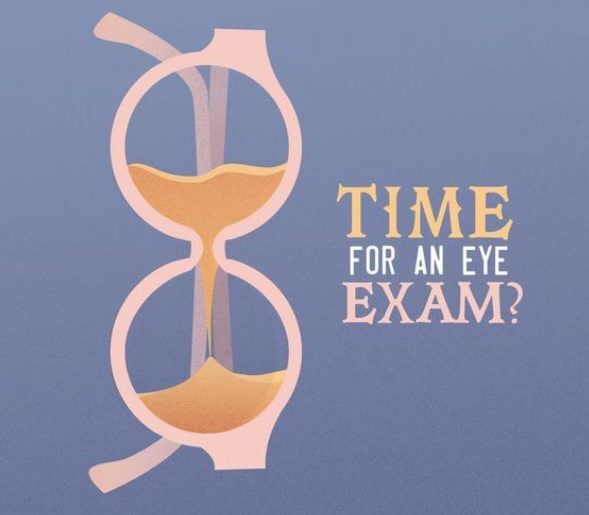| |
Educational Content Series:
How Often Should You Get an Eye Exam?
A Guide for Every Age Group3 min read Regular eye exams are vital for maintaining good vision and detecting early signs of eye disease—even if you think your eyesight is perfectly fine. But how often should you have your eyes checked? The answer depends on your age, overall health, and risk factors. Here’s a helpful guide to how often different age groups should schedule eye exams. Children (Ages 3–17)First exam: Around age 3, unless earlier issues arise. Before school (ages 4–5): One full eye exam to detect vision problems that could affect learning. School-age (6–17): Every 1–2 years if no vision correction is needed; annually if your child wears glasses or contacts.
Why it matters: Early vision issues like lazy eye or misalignment can be corrected more easily when caught early.
Adults (Ages 18–39)Low risk: Every 2 years. With vision correction (glasses/contacts): Annually or as recommended. High screen use: Consider annual check-ups to monitor digital eye strain.
Why it matters: Adults may develop early signs of eye conditions like dry eye or changes in prescription that affect work and daily activities.
Adults (Ages 40–64)Recommended: Every 2 years, or more frequently if you have health conditions such as diabetes or high blood pressure.
Why it matters: This is the age when presbyopia (age-related near vision difficulty) begins. Routine exams also help detect early signs of glaucoma, cataracts, and macular degeneration.
Seniors (Ages 65 and Older)Recommended: Annually.
Why it matters: Risk of serious eye diseases increases with age. Regular eye exams help manage or detect issues like glaucoma, diabetic retinopathy, and age-related macular degeneration before vision loss occurs.
Additional ConsiderationsIf you wear contact lenses, more frequent exams may be needed to ensure proper fit and eye health. People with a family history of eye disease or other risk factors (like diabetes) should follow their eye care provider’s personalised schedule.
Regular eye exams not only protect your vision—they can also reveal signs of other health conditions like high blood pressure, diabetes, and even brain tumours. Don’t wait for symptoms to appear. Source: Optometry Australia – "How Often Should You Have an Eye Examination?"
|
|


